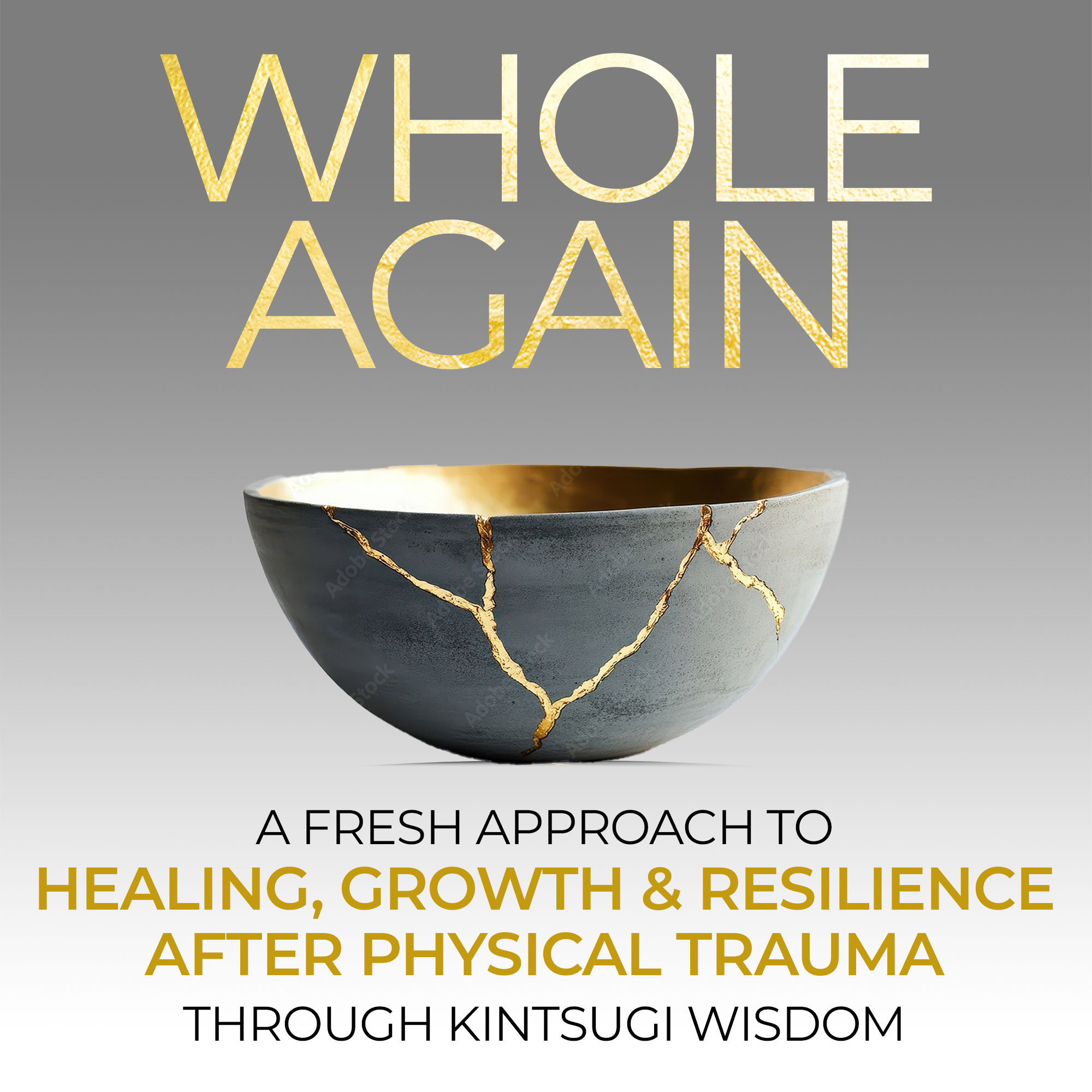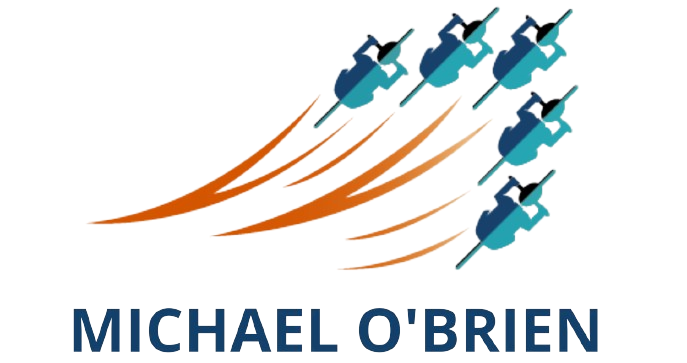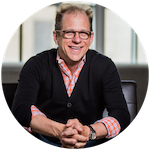
196 | What The Cherry Blossoms Have in Common with Healing, Transformation, and Resilience
What if your healing journey isn’t just about recovery—but about discovering who you can become?
Healing from trauma, injury, or illness often feels like a battle to get back to who we were. But what if true healing isn’t about restoration, but transformation? In this episode of Whole Again, Michael shares three powerful mindset shifts that can change how you approach recovery—plus one life-changing question that reframed his entire healing journey.
00:00 Introduction and Purpose
00:47 Gratitude and Acknowledgment
02:24 Concept 1: The Body as a Teacher
04:34 Concept 2: Embracing Impermanence
07:56 Concept 3: Wholeness Over Perfection
09:47 The Game-Changing Question
10:21 Recap and Final Thoughts
11:44 Closing and Additional Resources
Cherry Blossom Takeaways:
- Learn why your body is a teacher, not an enemy, and how to listen to its wisdom.
- Discover how the Japanese concept of mono no aware can help you embrace impermanence in healing.
- Understand why wholeness isn’t about perfection, but about embracing all parts of your journey.
Press play and explore a new way to see your healing—not just as recovery, but as a powerful path to self-discovery.
If this episode sparked something within you, please download it and share it with a friend.
Kintsugi is the Japanese art of repairing broken pottery with gold, silver, or lacquer, highlighting the cracks rather than hiding them. It embodies the philosophy of wabi-sabi, which finds beauty in imperfection and teaches that breakage and repair are part of an object’s history, making it more valuable rather than less. Metaphorically, Kintsugi reminds us that our challenges, scars, and setbacks are not something to be ashamed of but can be embraced as a source of strength and transformation.
Discover how to scroll less and live more by taking my Free Smartphone Wellness Audit by clicking phone.
Did you know that stickers are wonderful visual cues to help you create healthy habits? You can get one of my free Pause Breathe Reflect sticker by clicking sticker.
To discover more and sign up for My RIPPLE EFFECT newsletter by clicking Ripple Effect.
We can also connect on LinkedIn.
Subscribe to be sure you don’t miss any of the micro-meditations, wellness tips, and guidance that I publish every Monday, Wednesday, and Friday at 7:11 am.
If you feel you need more mental health support, please contact NAMI. This is a good place to start. If you have a question or comment, please reach out to Michael@PauseBreatheReflect.com.
With Whole Again: A Fresh Approach to Healing, Growth & Resilience after Physical Trauma through Kintsugi Wisdom, listeners explore resilience through personal stories of trauma, scars, and injury while learning to overcome imposter syndrome, self-doubt, and perfectionism with self-compassion, self-love, and self-worth. Through insightful discussions on stress management, mindfulness practices, and digital wellness, the show offers practical tools like breathwork, micro-dose meditation, grounding techniques, visualization, and daily affirmations for anxiety relief and stress relief. Inspired by the art of kintsugi, the podcast embraces healing as a process of transformation, encouraging a shift in perspective from worry and being overwhelmed to gratitude and personal growth. By exploring the mind-body connection, micro-dosing strategies for emotional well-being, and holistic approaches to self-care, this podcast empowers listeners to cultivate emotional resilience and live with greater balance and intention.
Healing with Whole Again Podcast Transcript:
In this episode, I’ll share a question that can shift your perspective on healing and recovery.
Hey there, it’s Michael. Welcome to Whole again. A show about supporting survivors of physical injury and trauma, reclaim their strength and resilience through the wisdom of Kazuki. In this episode, I’ll share three concepts with you. It can help shift your perspective on your healing process. And one question that was a game changer.
In my recovery. But first I wanna say thank you. Thank you for being here as one survivor to another. I know that showing up is hard sometimes. It’s not easy. So the fact that you’re here right now, you have shown up. I’m grateful for you and I want to thank you again for being here. I also want to thank you for being a survivor.
There’s something about the experience of healing, whether it’s from an injury, a surgery, an illness, or something traumatic, like what I went through and what you might have gone through. It has a way of placing us at a doorway. A threshold, if you will, but we don’t really know what’s on the other side.
And so it’s easy for us to resist it, to fight it. I know I did. And if you’re there, well congratulations. You are human and as one human to another. I think it’s perfectly natural to wish to go back to how we used to be before we went through what we went through. But what I discovered along the way. Was this healing isn’t about just restoring what was, it’s about stepping into who we can become as cliche and sort of cringe-worthy as this is going to sound.
It’s not about simply restoration. It can be about transformation. We can have post. After we’ve gone through something traumatic or an injury or an illness, and the first concept I wanna share is this one, that perhaps the body is a teacher, not an enemy. Our culture loves strength, right? Independence. Yet when we go through something and we need to heal, the body can feel weak.
We don’t feel independent. The body forces us or maybe invites us to slow down to listen to it because it’s whispering to us. But in our case, it might be really screaming at us and be with what is uncomfortable. That uncomfortableness is the teacher. Growing up, I wasn’t much of a fan of poetry. I really wasn’t that much of a fan of reading in general, but now I am.
And one poet I admire is John Donahue and he writes about how the body is the one place where the soul shows itself. Again, it serves as a teacher and as any teacher knows, asking brilliant questions usually produces better answers. So as you go through your healing process. I’ll offer up these questions three.
For all the Monty Python fans out there, what might your body be asking from you right now as you go through your healing process? Another one could be, what’s the wisdom in the pain you’re experiencing? And the third one, and one that I ask myself each day to this day. How can I listen rather than resist what my body is trying to tell me?
What the body asks from you changes all the time. It’s a lesson in impermanence, and this is the second concept I wanna share with you. There’s a Japanese concept called mono Know a ari. It really speaks to the impermanence in life and in nature, and there are two times a year where I really focus in on this, although there are many other times as well.
One is during the fall foliage when the leaves turn and fall and we enter winter. And the second time each year when the concept of man nore is a focal point for me is right now as we come into spring. I used to live in dc It’s where we started our family, and I used to work for a Japanese company, and I’ve traveled extensively to Japan, and I just love the cherry blossoms.
Their cherry blossoms are often a symbol for mono nore, waray. The whole concept that they too are impermanent. They blossom, the pink flowers flow everywhere, and then in a matter of time they’re gone. The beauty of the cherry blossoms, the reason why tourists flock to see them, or where I grew up, the lilac trees of Rochester, New York, or as I mentioned, the fall foliage.
People come out to see the colors because they realize it won’t last forever if the leaves fall were the leaves all year. We’d probably take it for granted. Or if the pink cherry blossoms were a full-time thing, we would probably bypass them. But we know that life is impermanent. We’re always changing.
Our environment’s always changing. In fact, we’re different right now than when we started this episode. So as we come into our healing process, we have an opportunity to embrace this concept of man nore, the concept of impermanence, that things are always changing around us and within us. So instead of looking back to what was, we can be curious as to what’s about to unfold, we can also be more present in the given moment.
We can see small victories as big victories. There are many things I learned during my recovery, and I’m sure you’re learning a whole bunch as well. One thing is that healing is not linear. There are ups and downs, plateaus, regression, progression, you name it. Healing is a journey, as they say, each moment.
Doesn’t last forever. There’s impermanence to it all. So we don’t clinging to the special moment. We don’t try to resist the difficult one. We try to accept all the moments as they come, as they unfold, knowing that there’s beauty in each moment, and we give ourselves some grace and patience as we do. Now, here’s the third thing.
This whole concept of wholeness of whole, again, I think you’ll appreciate this. It’s not about perfection. Again, through the lens of our western culture, wholeness can seem like perfection, void of any blemishes, wrinkles, scars, gray hairs, you name it, it’s seamless. Never been broken, untouched by struggle.
We don’t have to read the teachings of Buddha to fully understand this, what he wrote, what he taught in life. There’s suffering in life, there’s dissatisfaction. We know this ’cause we have lived it. We are living it. The reality is in life we go through illness and injury and trauma. There’s a great quote by the author, Parker Palmer.
He writes that wholeness does not mean perfection. It means embracing brokenness as an integral part of life. How true is that? Yes, we can break, we will, we’ll go through things again in life, there is dissatisfaction in life, there is struggle, there is suffering. And in the KSU wisdom, we can discover. We can come back together.
We can be whole again. Scars and all the scars are the symbols of our strength and resilience. So the mindset of healing, of growth and becoming more resilient is one where we embrace this whole concept. That wholeness being whole again, is not about perfection. It’s about embracing all of it. It’s about discovery.
This is the question as I mentioned upfront, that really was a game changer for me when a mentor shared with me. Maybe Michael, this isn’t about recovery for you. It’s about discovering who you can become. This question is a foundational question for us here at Whole Again, and it’s one I invite you to consider.
To pause, breathe, reflect on if you will.
So there you have it. In this episode, I shared three mindset concepts that can help you in your recovery. The first one is the concept that the body is a teacher, not the enemy. So instead of trying to push against the body, resisting it, we can get curious with it. Like any good teacher knows. Sometimes it’s good to ask a brilliant question to get a better answer.
The second one embraces spring and the cherry blossoms that will soon blossom, and the Japanese concept known as mono, no uare, that everything is impermanent, that our healing journey. Is not linear. There’ll be ups and downs and plateaus and regressions and progressions, and each moment has value and each moment is impermanent.
So we don’t try to clinging to the good ones, and we don’t try to fight the ones that are unpleasant. And the third one is that wholeness isn’t about perfection. On the contrary, it’s about embracing all of it.
We’re gonna become through this whole process. And as I mentioned, that question is about discovery, not just simply about recovery. As always, I appreciate you. Thanks for being here. Thanks for being a survivor and always know this, you’re a badass. Stay in the game. Keep showing up. You’ve got this.
Together. Together we go far together. We’ll put a beautiful ripple into the world,
and if you wish to learn more about creating beautiful ripples and how to prevent a bad moment from turning into a bad day. Please visit my website, which is Michael O’Brien shift.com and sign up for my newsletter called The Ripple Effect, and I hope you’ll join us every Monday, Wednesday and Friday at 7:11 AM here on the Co Sugi Podcast and discover how we can all celebrate our scars as golden symbols of strength and resilience.
Until then, remember, you can always come back to your breath. You’ve got this and we’ve got you.




Leave a Reply